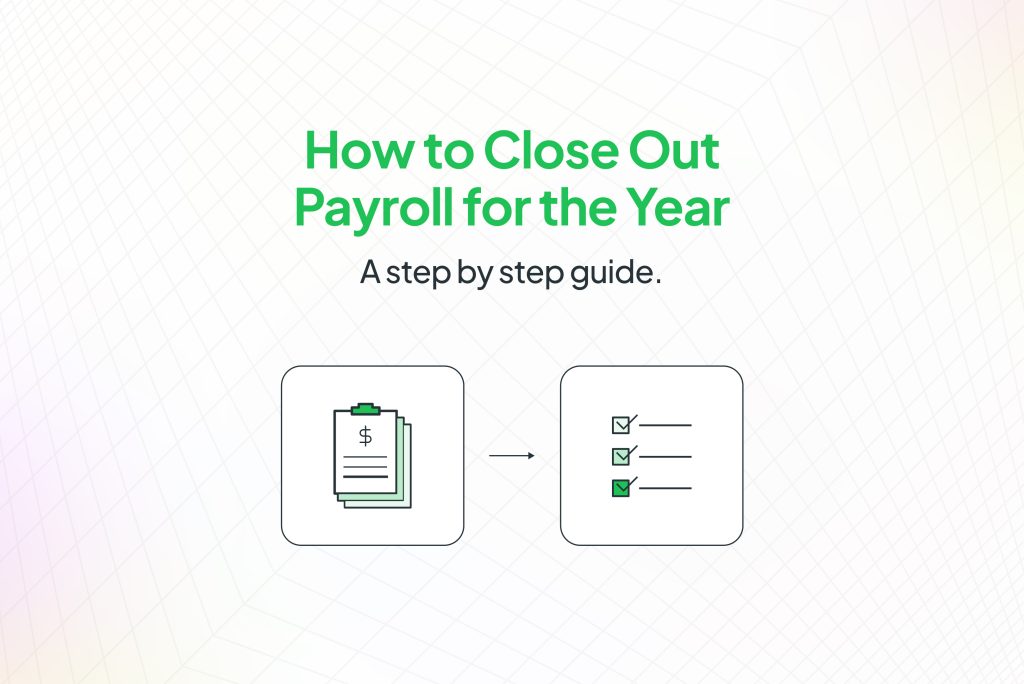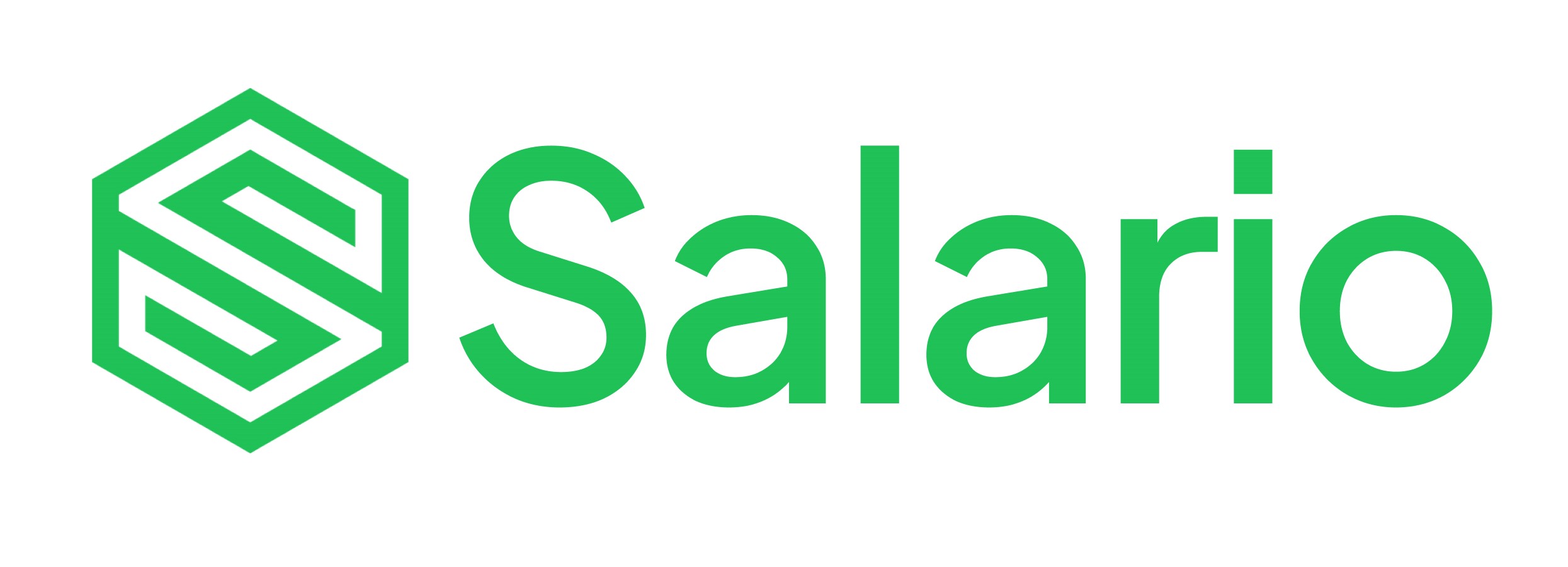
Knowing how to close out payroll at the end of the year is a crucial task for Nigerian businesses. Beyond issuing the final paychecks, it involves reconciling records, ensuring compliance with Nigerian tax regulations, and preparing for the new financial year. An accurate payroll close prevents legal penalties, strengthens employee trust, and ensures a smooth transition into the new year.
In this guide, we outline a step-by-step process tailored to the Nigerian context, helping businesses navigate year-end payroll with ease.
Why Closing Out Payroll in Nigeria is Important
Payroll closure ensures compliance with regulations set by Nigerian authorities, such as the Federal Inland Revenue Service (FIRS) and state tax boards. Failing to close payroll correctly can result in:
- Penalties for inaccurate or late filings of Pay-As-You-Earn (PAYE) taxes or pension contributions.
- Discrepancies in employee records, leading to mistrust and potential legal issues.
- Delays in statutory reporting, such as submission of annual returns.
Proper payroll closure also helps businesses plan effectively for the upcoming year by reconciling all financial records.
Step 1: Review Employee Records
If you have not been keeping tabs on your employee records, this is the best time to do this. While this is more of an HR roll, depending on what team handles salary disbursement it could be a joint task. Begin by verifying all employee information in your payroll system. This ensures accurate reporting and compliance.
- Confirm Employee Personal Details:
Verify names, Tax Identification Numbers (TINs), bank account details, and contact information. Ensure these match official documents. - Update Employment Status:
Identify any employees who resigned, were terminated, or joined during the year. Process their final entitlements, if applicable. This is essential for planning activities and tasks for the new year. - Cross-Check PAYE Deductions:
Ensure that PAYE deductions align with the progressive tax rates set by FIRS and state Internal Revenue Services (IRS).
Pro Tip: You don’t have to wait till the end of the year before you update your payroll system. Do this at regular intervals during the year to reflect changes in employee status throughout the year.
Step 2: Reconcile Payroll Data
Payroll data could slip through the cracks during the busyness of work season, you should taake out time to reconcile your payroll data. Reconciliation ensures your payroll records match actual payments made to employees and statutory bodies.
- Verify Payment Records:
Compare payroll records with your bank statements to ensure all salaries and allowances were paid correctly. - Confirm Statutory Deductions:
Cross-check deductions for:- PAYE taxes
- Pension contributions (both employer and employee portions, typically 10% and 8%, respectively)
- National Housing Fund (NHF) contributions
- Employee Compensation Scheme (ECS) levies
Where necessary.
- Account for Non-Regular Payments:
Include bonuses, overtime, and leave allowances in your reconciliation.
Step 3: Process Final Payroll for December
Ensure your last payroll run of the year is accurate and reflects all necessary adjustments.
- Holiday Bonuses:
If your business offers December bonuses, process them alongside regular salary payments. - 13th month salary:
If your business offers a 13th month bonus, (an extra month’s salary), process them alongside regular salary payments. - Unused Leave Days:
Decide whether unused leave days will be paid out or carried over into the new year. - Final Deductions:
Deduct any outstanding loans or advances before issuing final payments.
Step 4: Submit Year-End Statutory Remittances

Statutory compliance is non-negotiable in Nigeria. At year-end, ensure all remittances are up to date.
- PAYE Tax:
Submit monthly PAYE tax deductions to the appropriate state IRS. Ensure you meet the deadline to avoid penalties. - Pension Contributions:
Remit contributions to the relevant Pension Fund Administrators (PFAs) for both employees and employers. - Other Deductions:
- NHF Contributions: Submit 2.5% of basic salaries to the Federal Mortgage Bank of Nigeria.
- Employee Compensation Scheme: Remit to the Nigeria Social Insurance Trust Fund (NSITF).
Step 5: Distribute Year-End Reports to Employees
Provide employees with key documents to ensure transparency and compliance. This helps to build trust and improve fiscal responsibility on the path of your employees.
- Pay Slips:
Include a breakdown of earnings, deductions, and net pay for the year. - Tax Clearance Certificates (TCCs):
Assist employees in obtaining their TCCs from state IRS offices if requested. - Pension Statements:
Ensure employees receive annual statements from their PFAs to review contributions.
Step 6: File Annual Returns
Under Nigerian law, employers must file annual returns with the relevant tax authorities.
- Federal Filing (FIRS):
Submit an annual payroll summary for PAYE taxes to FIRS by the stipulated deadline, typically January 31. - State IRS Filing:
File annual PAYE returns with the state IRS for employees working in specific states. - Pension Contributions:
Submit a year-end report to PFAs and the National Pension Commission (PenCom), detailing all contributions.
Pro Tip: Work closely with tax consultants or use payroll software to simplify the filing process.
Step 7: Archive Payroll Records
Maintaining organized records is crucial for compliance and audits.
- Retain Records for At Least Six Years:
Keep payroll summaries, remittance receipts, and employee details securely. - Choose Secure Storage Options:
Use encrypted digital storage or physical filing systems with restricted access.
Step 8: Prepare for the New Year
Once payroll for the current year is closed, shift focus to setting up systems for the new year.

- Update Tax Rates:
Adjust PAYE tables and other statutory rates as per any changes announced by FIRS or state IRS. - Roll Over Employee Entitlements:
Update balances for leave days or carryover allowances. - Communicate Updates:
Notify employees of any changes in deductions, allowances, or company policies affecting payroll.
Common Challenges in Closing Payroll in Nigeria
Despite careful planning, some challenges are unique to the Nigerian context. Here’s how to address them:
- Unclear Tax Policies:
Stay updated on announcements from FIRS or state tax boards to ensure compliance with new guidelines. - Systemic Delays:
Delays in obtaining tax clearance or remittance confirmations can be mitigated by starting the process early. - Employee Inquiries:
Be prepared for employee questions about year-end deductions or contributions. Maintain a transparent communication channel.
Conclusion: Closing Payroll with Confidence
Closing out payroll at the end of the year is a critical task that requires meticulous attention to detail. For Nigerian businesses, the process involves ensuring compliance with local regulations, reconciling payroll data, and preparing statutory reports.
By following this step-by-step guide, you can streamline the process, avoid penalties, and foster employee trust. Start early, leverage reliable payroll systems, and stay informed about regulatory changes to ensure a seamless year-end close.
Ready to close out your payroll? Take the first step today by signing up with Salario to set your business up for success in 2025.
